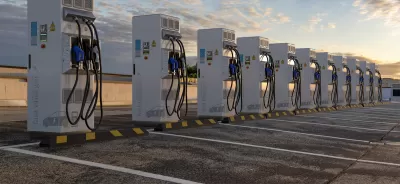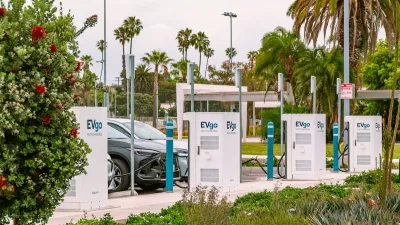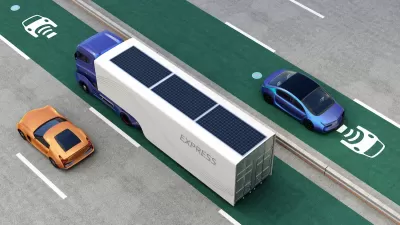The Golden State has received almost $150 million from the U.S. Department of Transportation to build over 9,200 EV charging ports, bolstering the state’s efforts to expand zero-emission vehicle infrastructure and reduce greenhouse gas emissions.

California has been awarded nearly $150 million by the U.S. Department of Transportation to support the construction of over 9,200 electric vehicle (EV) charging ports across the state, a crucial step in addressing "range anxiety" and making zero-emission vehicles more appealing to a broader range of drivers. As reported by Colleen Shalby for the LA Times, this funding is part of a larger $521-million infrastructure package distributed to various states, tribes, and the District of Columbia, with the goal of reducing greenhouse gas emissions and promoting sustainable transportation. The bulk of the funds allocated to California will go to the State Department of Transportation, which will use $102 million to build charging and hydrogen fueling stations along key freight corridors, benefiting both passenger vehicles and trucks.
Additional funds include $15 million for Los Angeles County, the City of Los Angeles, and the Los Angeles County Metropolitan Transportation Authority to construct over 1,250 EV charging stations, particularly in underserved communities, and $15.1 million for the Fort Independence Indian Community to establish an EV charging hub along U.S. Route 395. Other significant allocations include $14 million for Bay Area Rapid Transit (BART) to install charging ports at parking facilities and $3.2 million for the Shingle Springs Band of Miwok Indians to build 70 charging stations along U.S. Route 50 between Sacramento and South Lake Tahoe. The federal government's initiative aims to provide reliable infrastructure that supports the transition to EVs and addresses the challenges of limited charging availability.
This announcement is part of a broader effort by the Biden-Harris Administration to lead the EV revolution and ensure that all drivers have access to convenient and reliable charging options. The funds will not only support the EV infrastructure but also pave the way for future investments in sustainable construction materials. As California moves toward its goal of banning the sale of new gasoline- and diesel-powered vehicles by 2035, this investment in charging infrastructure is seen as vital to ensuring that the EV market can grow and that the associated environmental, health, and economic benefits can be realized.
FULL STORY: California receives $150 million for thousands of EV charging ports

Trump Administration Could Effectively End Housing Voucher Program
Federal officials are eyeing major cuts to the Section 8 program that helps millions of low-income households pay rent.

Planetizen Federal Action Tracker
A weekly monitor of how Trump’s orders and actions are impacting planners and planning in America.

Ken Jennings Launches Transit Web Series
The Jeopardy champ wants you to ride public transit.

California Invests Additional $5M in Electric School Buses
The state wants to electrify all of its school bus fleets by 2035.

Austin Launches $2M Homelessness Prevention Fund
A new grant program from the city’s Homeless Strategy Office will fund rental assistance and supportive services.

Alabama School Forestry Initiative Brings Trees to Schoolyards
Trees can improve physical and mental health for students and commnity members.
Urban Design for Planners 1: Software Tools
This six-course series explores essential urban design concepts using open source software and equips planners with the tools they need to participate fully in the urban design process.
Planning for Universal Design
Learn the tools for implementing Universal Design in planning regulations.
Ada County Highway District
Clanton & Associates, Inc.
Jessamine County Fiscal Court
Institute for Housing and Urban Development Studies (IHS)
City of Grandview
Harvard GSD Executive Education
Toledo-Lucas County Plan Commissions
Salt Lake City
NYU Wagner Graduate School of Public Service





























